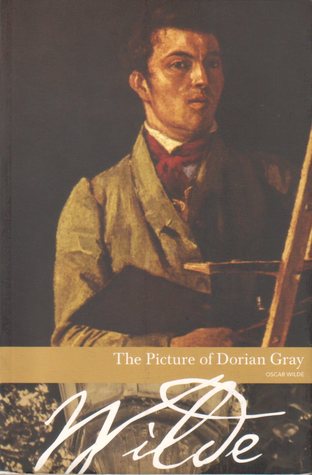 The Picture of Dorian Gray by Oscar Wilde
The Picture of Dorian Gray by Oscar Wilde Published by Borders Classics on January 1, 2006 (first published June 20, 1890)
Source: On shelves
Genres: Classic, Fiction
Pages: 194
Format: Paperback
Purchase at Bookshop.org or Purchase at Amazon
Add on Goodreads
Dorian Gray, a handsome and narcissistic young man, lives thoughtlessly for his own pleasure - an attitude encouraged by the company he keeps. One day, after having his portrait painted, Dorian makes a frivolous Faustian wish: that he should always remain as young and beautiful as he is in that painting, while the portrait grows old in his stead.
The wish comes true, and Dorian soon finds that none of his wicked actions have visible consequences. Realizing that he will appear fresh and unspoiled no matter what kind of life he lives, Dorian becomes increasingly corrupt, unchecked by public opinion. Only the portrait grows degenerate and ugly, a powerful symbol of Dorian's internal ruin.
Yeah, so I’m not a fan of The Picture of Dorian Gray. I’m sorry, but it was kind of boring and I knew how it was going to end. The idea itself is interesting; Dorian doesn’t age, but his portrait does and it shows all the signs of his downfall instead of him. Of course, it takes almost half the book to get to that part. it’s a much more philosophical book than I though it would be. It touches on the nature of art and on society’s adoration of youth and beauty. Sin is obviously important to the story and what a person will do if they are free from consequences, but I think even more important is the dangers of truly influential people. Dorian wasn’t the star for me, his “friend” Henry was. It’s Henry who leads him down the hedonistic path. Henry is charming and witty, he theorizes and shocks people. He encourages Dorian, even though he himself seems to lead a pretty unremarkable life.
Dorian starts off as a beautiful young man, who eventually does whatever he wants whenever. Really, though, we don’t see much of what makes him a terrible person. Two events, breaking a young woman’s heart, leading her to commit suicide, and committing murder himself are clearly reprehensible; but we have 18 years where his friends eventually mostly turn against him, where it becomes increasingly obvious that people know he is immoral, but we don’t know really what he does. We can guess and assume, but I expected to read more of his actual actions. Of course, given the time period this was written, that was probably an unrealistic expectation.

I tried to watch the movie, yawn
It was okay. But I think Wilde’s short stories are better.
Amber’s reading The Importance of Being Earnest in school this month, so I might join her. It sounds like I’ll definitely enjoy it more.
I listened to this one pre-blogging a remember finding it a little boring too.